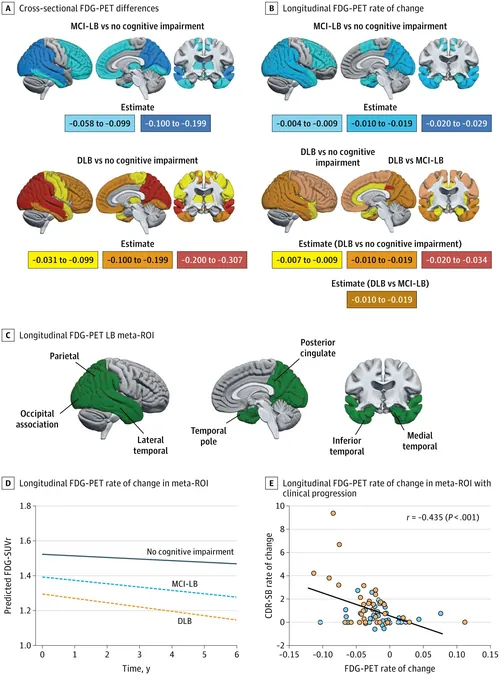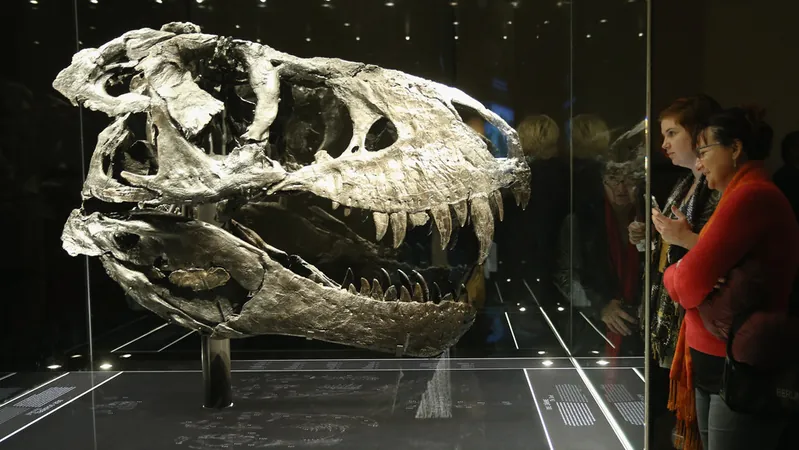
Shocking Discoveries: Early Signs of Brain Degeneration in Dementia with Lewy Bodies Uncovered!
2025-01-13
Author: Jacob
Groundbreaking Study Unveils Early Signs of Brain Degeneration
A groundbreaking study conducted by researchers at Karolinska Institutet and Mayo Clinic has unveiled critical findings regarding the onset of brain degeneration in dementia with Lewy bodies (DLB). Published in the prestigious JAMA Neurology, this research promises to enhance the way doctors monitor and treat this debilitating brain disease.
Understanding Dementia with Lewy Bodies
Dementia with Lewy bodies is one of the most common forms of dementia, characterized by the abnormal build-up of the protein alpha-synuclein in the brain. This accumulation leads to progressive brain degeneration, manifesting in cognitive difficulties, motor impairments, and behavioral changes. Ultimately, the condition can result in severe dementia and even death. While doctors often utilize an advanced imaging method known as FDG-PET to evaluate brain function in DLB patients, the timeline for the development of these brain changes has remained elusive—until now.
Study Design and Key Findings
The research, headed by Dr. Daniel Ferreira from the Department of Neurobiology, Care Sciences, and Society, monitored 35 patients already diagnosed with DLB, 37 individuals diagnosed with early-stage DLB (known as prodromal DLB), and a control group of 100 healthy participants from the Mayo Clinic over an average period of 3.8 years. The findings revealed a startling realization: brain degeneration in those with prodromal DLB occurs much earlier than previously thought and intensifies as the disease advances.
Implications for Patient Monitoring and Treatment
"We found that patients with prodromal DLB displayed significantly faster degeneration in specific brain regions compared to healthy counterparts," explained Dr. Ferreira. "This pivotal insight is essential for early-stage monitoring of the disease's progression and will aid in planning future clinical trials for promising new treatments." Moreover, the research indicated a direct correlation between the brain alterations observed in FDG-PET scans and the deterioration of clinical symptoms associated with DLB. This discovery implies that FDG-PET could serve as a powerful tool not only for tracking the speed of disease progression but also for assessing treatment efficacy in patients.
Collaboration and Future Directions
This innovative research contributes to an international scientific collaboration led by Dr. Ferreira alongside Dr. Kejal Kantarci at Mayo Clinic. Their findings pave the way for a deeper understanding of DLB and hold the potential to revolutionize patient care strategies aimed at improving the quality of life for those affected.
Conclusion and Call for Continued Research
As awareness of dementia with Lewy bodies increases, these compelling insights emphasize the critical need for ongoing research and innovation in the field. Stay tuned as we keep you updated on future breakthroughs that could change the face of dementia treatment!









 Brasil (PT)
Brasil (PT)
 Canada (EN)
Canada (EN)
 Chile (ES)
Chile (ES)
 Česko (CS)
Česko (CS)
 대한민국 (KO)
대한민국 (KO)
 España (ES)
España (ES)
 France (FR)
France (FR)
 Hong Kong (EN)
Hong Kong (EN)
 Italia (IT)
Italia (IT)
 日本 (JA)
日本 (JA)
 Magyarország (HU)
Magyarország (HU)
 Norge (NO)
Norge (NO)
 Polska (PL)
Polska (PL)
 Schweiz (DE)
Schweiz (DE)
 Singapore (EN)
Singapore (EN)
 Sverige (SV)
Sverige (SV)
 Suomi (FI)
Suomi (FI)
 Türkiye (TR)
Türkiye (TR)
 الإمارات العربية المتحدة (AR)
الإمارات العربية المتحدة (AR)